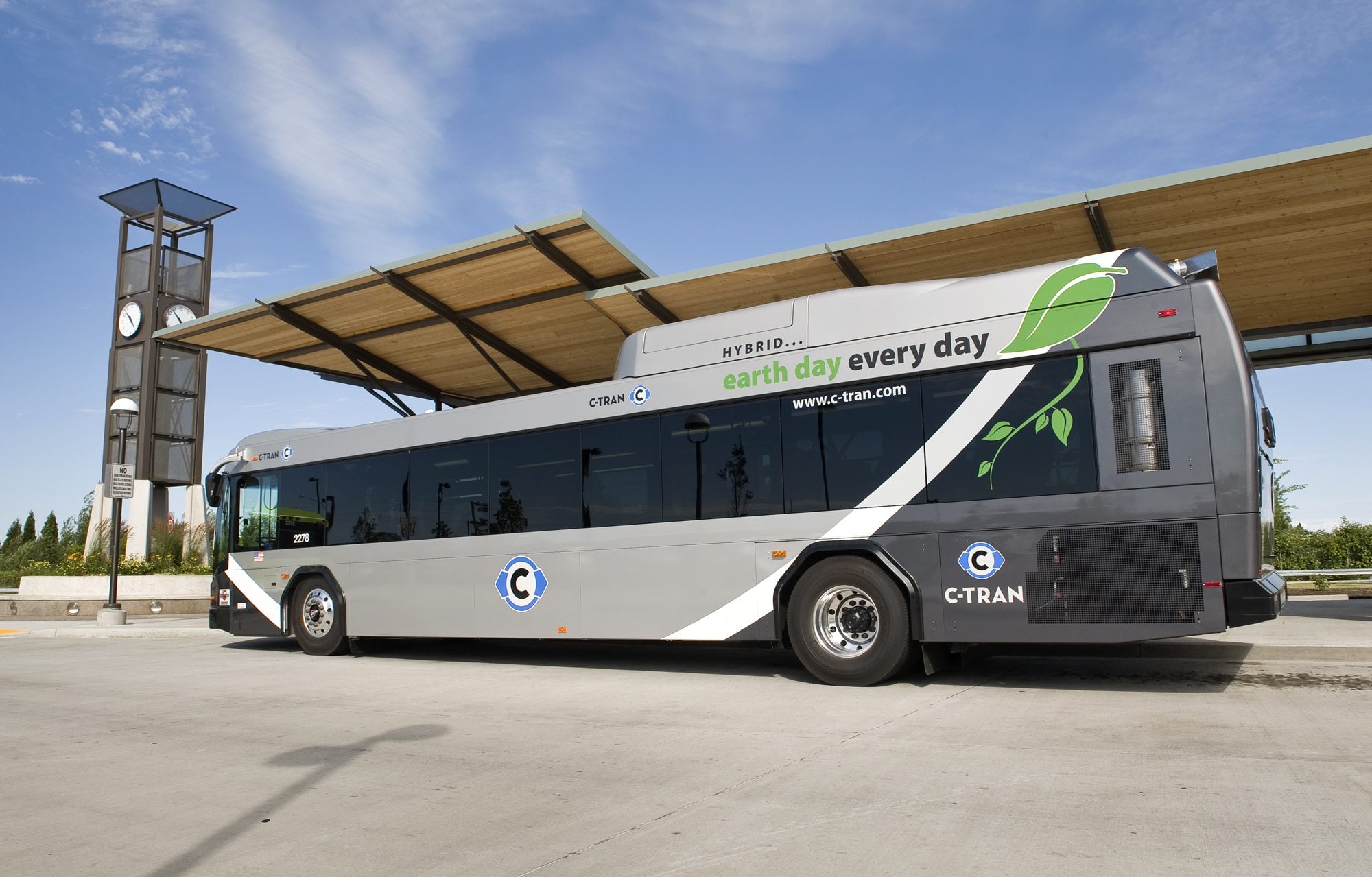Click here for an interactive map that breaks down the Prop. 1 vote by precinct.
Five of the seven municipalities in C-Tran’s service area supported Proposition 1 in last month’s election, according to detailed Clark County election results released last week.
The precinct-by-precinct breakdown of how the C-Tran sales tax measure fared shows varying levels of support across the county. But it didn’t reflect the urban-rural divide that some may have expected, said C-Tran Public Affairs Director Scott Patterson.
“I think a lot of people assume that Vancouver’s going to come through strong just because it’s the urban area,” Patterson said, noting last month’s results show more broad support than that.
Prop. 1 bumped C-Tran’s local sales tax rate by 0.2 percentage points, raising an estimated $8 million to $9 million annually to maintain existing bus and paratransit service. The result means C-Tran’s sales tax rate will jump to 0.7 percent on April 1. A Tuesday vote by the C-Tran board made that official.
Only two communities as a whole rejected Prop. 1: Battle Ground, which said no by a narrow margin of 50.5 percent to 49.5 percent, and the town of Yacolt — served only by a once-daily limited bus route — where 52.4 percent of voters rejected the measure.
Overall, Prop. 1 passed with about 54 percent of voters behind it. The city of Woodland, which sits partially in Clark County, is not included in C-Tran’s taxing district.
The measure found its strongest support in southwest Vancouver. A few downtown precincts turned out with more than 70 percent in favor of Prop. 1, according to the data. As a whole, the city of Vancouver voted nearly 57 percent in favor of Prop. 1.
The measure’s worst showing came in north Camas and a small pocket of Vancouver’s northern urban growth boundary, east of Interstate 205, where fewer than 40 percent of voters supported Prop. 1.
C-Tran leaders analyzed the results as part of last week’s afternoon board workshop at Vancouver City Hall. Now they turn their attention to a second sales tax measure planned for next year to pay for the operation of proposed light rail and bus rapid transit systems in Vancouver.
The agency may face an uphill climb with that measure, centered around a politically charged light-rail issue, tied to the more than $3 billion Columbia River Crossing project. A recent survey by Seattle-based EMC Research showed a split public with relatively few people on the fence.
As part of the survey — conducted last month, after the Prop. 1 election — pollsters asked Clark County adults to respond to this statement: “Building a light-rail line from Vancouver to south to connect to Max light rail is a high priority.”
Fifty-one percent of respondents said they either strongly or somewhat agree with that sentiment, according to the survey. Forty-two percent said they either strongly or somewhat disagree. Only 6 percent were listed as having no opinion.
The data showed roughly two-thirds of respondents camped firmly on opposite sides of the light-rail question — 34 percent said they strongly support it, while 32 percent counted themselves as strongly opposed. That means next year’s election would likely be decided by that middle third, EMC Research analyst Ian Stewart told C-Tran board members last week.
“A lot of people have already made up their minds,” Stewart said.
EMC’s survey of 600 C-Tran district residents also found a 68 percent “favorable” rating for the agency, down from 75 percent in 2010. Stewart called that drop a “significant change,” but said better than two-thirds approval is still a good place for a public agency to be. Portland’s TriMet, by comparison, registered a 57 percent favorable rating this year, according to EMC.
C-Tran didn’t score as high on fiscal prudence. Only 50 percent of respondents said they strongly or somewhat agreed that “C-Tran is using my tax dollars responsibly,” according to EMC. That’s down from 52 percent in 2010.
Eric Florip: 360-735-4541; http://twitter.com/col_enviro; eric.florip@columbian.com.




